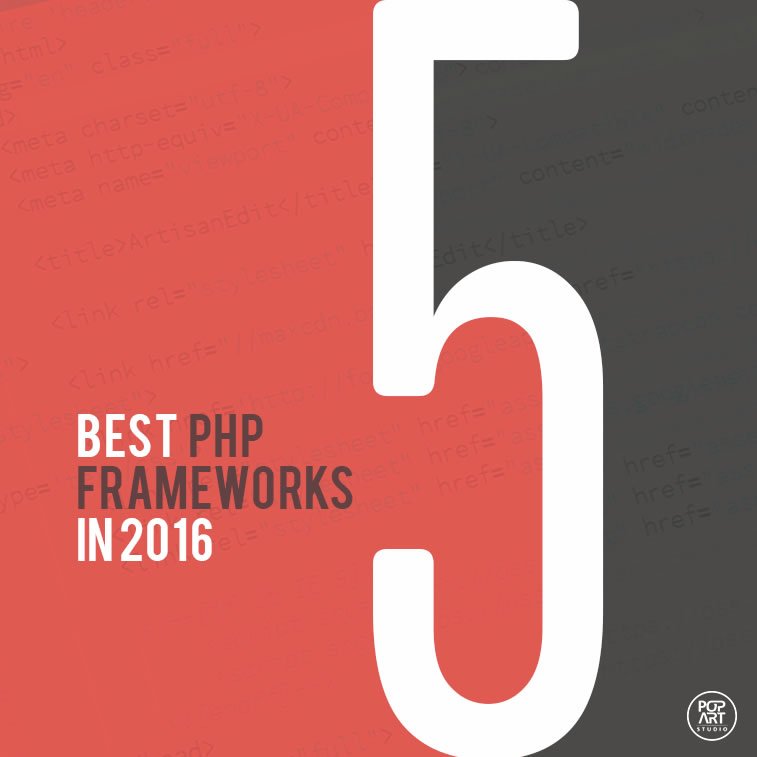Even though 2016 did not bring anything spectacular so far, this is the year when many web development frameworks based on PHP have been released in their newest versions.
See our (and your) choice of 5 best PHP frameworks for this year.
What is PHP?
PHP is a server-side scripting language which also serves as a general-purpose programming language. This 22-year-old web development language was created by Rasmus Lerdorf and its acronym used to refer to Personal Home Page/Forms Interpreter, but now its backronym means PHP: HyperText Preprocessor. It is currently used by more than 80% of websites, according to w3techs data, including Facebook, Baidu, Wikipedia, Twitter, Vk, etc.
It is announced that in 2016 there the newest version of PHP (7.1) will roll out, with new features (void return type, class constant visibility modifiers). PHP is so popular because it simply makes beautiful code.
Best PHP Frameworks:
5. Phalcon
Maybe the youngest framework on our list, Phalcon has quickly made it to the top five since its release in 2012. Fast as a falcon, written in C and C++, this framework has the highest performance optimization possible. Even though it was written in C, you do not need to learn this language since its classes are ready to use for any application. Its latest stable release was 20 days ago, on May 20, 2016.
This MVC (model-view-controller) has a universal auto-loader, cool translation, security and caching features, as well as asset management and is easy to use due to its good documentation. Do check it out!
4. Yii
Yii is an open-source MVC web application framework based on PHP (5.4.0 and above). Its name comes from Chinese ‘yee’ which means ‘simple and evolutionary’, but it can also be a backronym for ‘yes it is’. Its newest stable version was released in February 2016. This framework has clean and logical code base, it is purely object-oriented and very fast. Frontend developers love Yii because it is integrated with jQuery and comes with a set of Ajax-enabled features.
Besides this, it has a cool class code generator (Gii) which facilitates object-oriented programming and fast prototyping, and a web-based interface in which you can generate code.
3. CodeIgniter
This open-source web framework was developed in 2006 for building sites that use PHP (at least 5.2.4). It is based on MVC development pattern, having models and views optional and controller classes necessary part of development.
One of its often-praised, probably the best features is its speed – it is so light, fast and does not really seem to be a framework (it has a 2MB download, including user guide). Its source code is maintained at GitHub and its last stable release was rolled out in March 2016 (3.0.6).
2. Symfony
Symfony is a PHP web application framework and a set of reusable PHP components released in 2005. It was aimed at making the creation and maintenance of web applications much faster and replace repetitive coding tasks. It was inspired by Ruby on Rails, Django, and Spring.
It is currently used by the websites of Delicious and Vogue France, only to name a few. It is also interesting that its components are used in the Laravel framework. You can track the usage of Symfony in the real world apps via the official site of the project. Its best feature is that it is constantly improved, very stable, and has a huge community of developers who use and maintain it.
1. Laravel
You have probably thought this was coming at the top of our list (even though it is ordered in the opposite way).Laravel was definitely the most popular PHP framework in 2015 (and many years in a row, for that matter) and it promises to stay that way in the future as well (source: Sitepoint). Its latest stable version was released 6 days ago, on June 6, 2016. It is free, open-source and intended for MVC architecture. Fairly quickly since its first release, it has become a synonym for PHP framework as it relies on modular packaging system and utilities that help in database and application maintenance and deployment. Its source code is hosted on GitHub and can be used across all operating systems
Mind you that this list is far from final, and can be enriched with frameworks such as Nette, CakePHP, Zend, Slim, etc. It basically depends on a developer’s needs what might be the best or the most suitable, so this list can be different in the eyes of many a developer.
Do you agree with our list of the best PHP frameworks and do you have anything to add? Please write in the comments below or on our Facebook page.
Like this article about PHP? Read more about web development:





